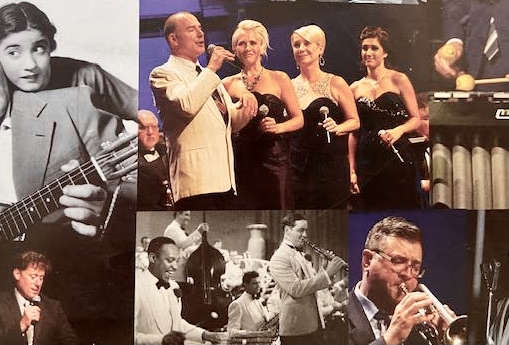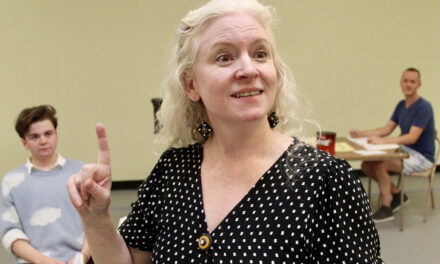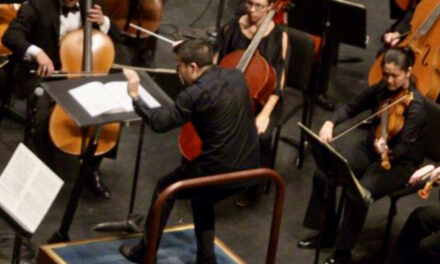By Daniel Buckwalter
More than once in the past two-plus years, I have pondered the question first raised almost a century ago by German composers Bertolt Brecht and Kurt Weill in The Threepenny Opera: “What Keeps Mankind Alive?”
There was no answer to that on July 29 during a matinee performance of the Oregon Festival of American Music at The Shedd, nor was I expecting one.
Instead — with vocalists Siri Vik, Lyn Burg and Bill Hulings, backed up by a seven-piece band led by pianist Vicki Brabham — a good-sized audience was treated to a smart array of excerpts from Depression-era Broadway music that perfectly encapsulates the time, and no one has to look hard to see why the music still resonates.
Brother, Can You Spare A Dime? — Broadway’s conscience, 1928-40 explores the greed of the corporate world, the wrath and folly of federal governments as well as the degrading nature of racism.
The program has a global reach. Besides Brecht and Weill, there’s Noël Coward’s Mad Dogs And Englishmen from the 1931 musical, The Third Little Show, a nodding acknowledgement of England’s rule of India.
Unions make an appearance, as they should from this era. A medley from The Cradle Will Rock — by Marc Blitzstein in 1938 — makes the case for pro-unionists at a time when pro-union activities could get you killed. Not to mention gain the attention of the government that might want to shut you down.
Hulings does a very good job telling the remarkable story of how a young Orson Welles, the director on opening night, had to move the production to another theater because the Works Progress Administration pulled its funding at the behest of big business. Even if you know the story of the attempted government censorship, it’s worth listening to again.
Thankfully, a medley of songs from Porgy And Bess also appear on the program. True, the Gershwin brothers (George and Ira) teamed with DuBose Heyward (a total of three white men) to create Porgy And Bess, but the simple staging of the musical with an all-Black cast had to be a revelation — and not a subtle one — in 1935.
Most of the music in Brother, Can You Spare A Dime? is light, even spritely. As Vik notes early in the program, you have to look closely to see the satire in the lyrics, and that is the definition of good satirical composing.
Brother, Can You Spare A Dime? — Broadway’s conscience, 1928-40 plays again at 7:30 p.m. on Aug. 5 at The Shedd’s Jaqua Concert Hall, part of OFAM’s two-week run.
It is smart entertainment. Spare yourself the time and see it.
NOTE: A full calendar of the 2022 OFAM schedule follows:
At The Shedd — Oregon Festival of American Music 2022 recalls the joys and hardships of the 1930s through the films and songs of the era












